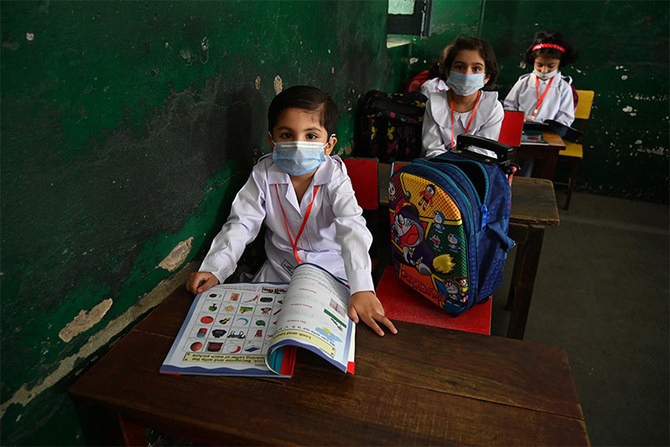ISLAMABAD: Pakistan was among the South Asian countries where closure of schools due to COVID-19 had led to alarming inequities in learning opportunities for children, the United Nations Children’s Fund said on Thursday, with 23 percent Pakistani children not having access to remote learning devices.
The research conducted in Pakistan, India, Sri Lanka and the Maldives noted that school closures in South Asia had interrupted learning of 434 million children.
The UN agency urged authorities to prioritize safe reopening of schools, noting that almost 60 percent of children in the region were unable to read and understand a simple text by the age of 10 even before the pandemic.
“In Pakistan, 23 percent children didn’t have access to any device that could support remote learning,” it said. “Children from poor and disadvantaged households were the worst-hit, with many families struggling to afford even a single device.”
Even when devices were available, the study said they would often be underutilized and that children’s access to them was limited. Among Pakistani children with access to such devices, only about 24 percent could use them whenever they wanted to.
A large number of students and their parents reported that students learnt significantly less compared to pre-pandemic levels, according to the study. Despite significant efforts from governments, low connectivity and access to digital devices had severely hampered efforts to roll out remote learning.
It found that student-teacher engagement, when regular and reciprocal, was a strong predictor of success in children’s learning. However, most students had little or no contact with their teachers after the closure of schools.


















